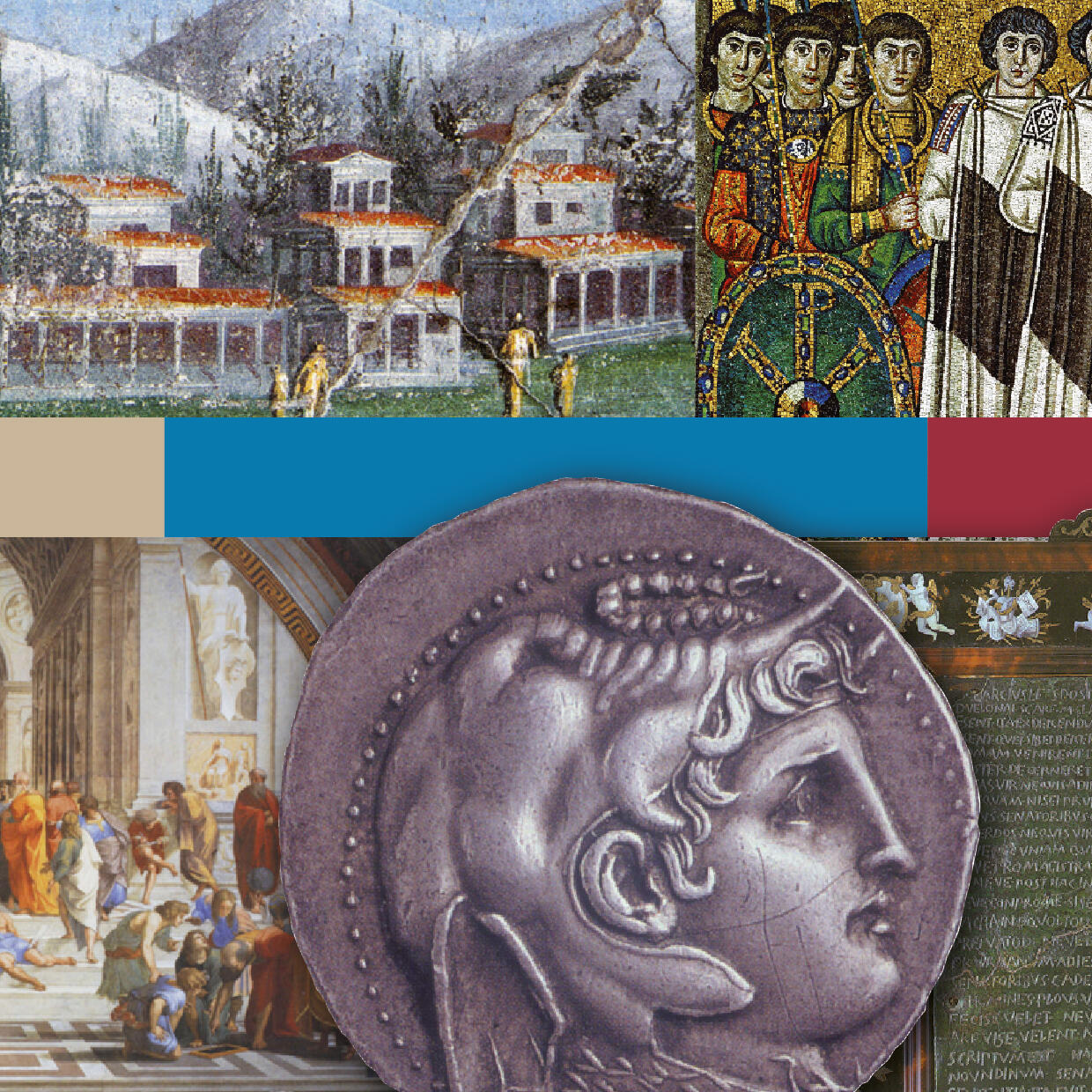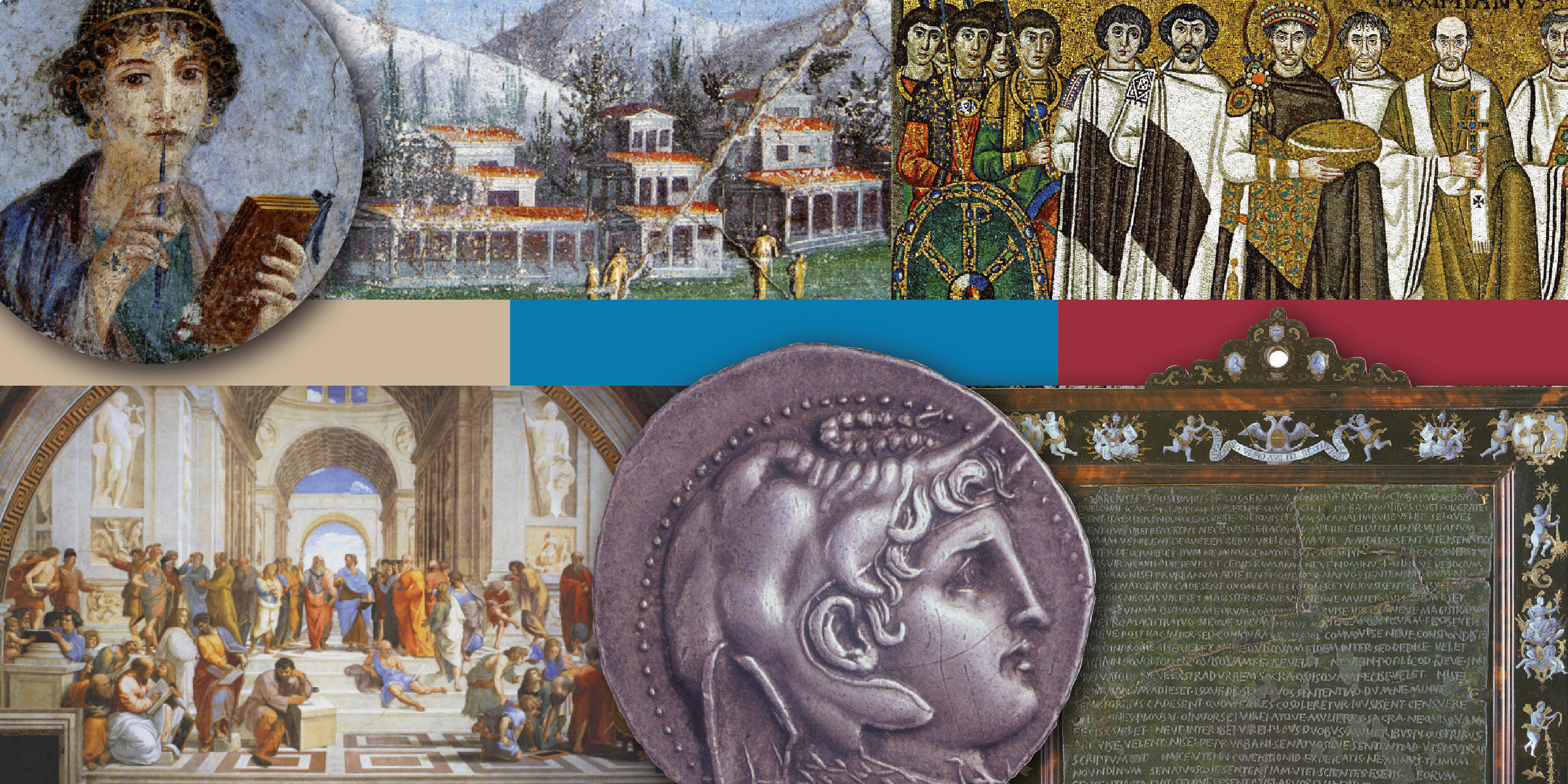


Course Catalogue

Courses for Studying in Old Age
Courses in Foreign Languages (WiSe 2024/25)
Historisches Seminar
- Di, 10–12 Uhr
Übung: New Takes on Late Modern Museum Collecting Practices [088285]
Dr. João Figueiredo - Mi, 10–12 Uhr
Übung: Toleration in Early Modern Europe [088280]
Dr. Nikolas Funke - Do, 10–12 Uhr
Übung: Childhood, youth and education in (post)colonial Asia (c. 1800-1960) [088260]
Dr. Kirsten Kamphuis
Philosophisches Seminar
- Mo, 10–11 Uhr
Seminar: Trends in Philosophy of Mind: Understanding Human and Nonhuman Consciousness [088632]
Dr. Victor Carranza Pinedo
Institut für Ethnologie
- Mo, 14–16 Uhr
Vorlesung: Areas and Regions of Social Anthropological Research [088878]
Prof. Dr. Dorothea Schulz - Mo, 16–18 Uhr
Seminar: Humanitarian intervention policies: Critical perspectives [088887/088888]
Dr. Souleymane Diallo - Di, 14–16 Uhr
Seminar: Sensory Anthropologies of Environment and Well-being: Learning from Southeast Asia [088882]
Prof. Dr. Thomas Stodulka - Di, 14–16 Uhr
Seminar: Research Related Concepts and Theories [088883]
Prof. Dr. Dorothea Schulz - Mi, 10–12 Uhr
Seminar: Foundations of Empirical Research [088880]
Prof. Dr. Thomas Stodulka - Mi, 12–14 Uhr
Übung: Anthropology of War: Methods and Theories [088889]
Dr. Souleymane Diallo - Do, 12–14 Uhr
Seminar: Self, emotions, and womanhood. Decolonial theories and narratives from the “Global South” [088886]
Irina Savu-Cristea M.A. - 12./13.10. + 23.11. + 15.12. + 26.1., jeweils 11–17/18 Uhr
Seminar: Decolonial and collaborative Strategies in creative audiovisual Anthropology [088876/088881]
Thomas John M.A.
- Di, 10–12 Uhr
Courses on Equal Opportunities (WiSe 2024/25)
Institut für Kulturanthropologie/Europäische Ethnologie
- Di, 10–12 Uhr
Seminar: Das Ortsfamilienbuch: Geschichtsschreibung von unten, politische Mobilisierung, citizen science [084827/084832]
Elisabeth Timm - Di, 10–12 Uhr
Seminar: Konzepte von Kultur und Gesellschaft [084823]
Timo Luks - Di, 12–14 Uhr
Seminar: Anthropologie(n) der Arbeit [084831]
Timo Luks - Di, 14–16 Uhr
Übung: Historisch-anthropologische Methoden (einschl. Exkursionen) [084825]
Elisabeth Timm - Mi, 12–14 Uhr
Vorlesung: Theorie und Geschichte der Kultur- und Sozialanthropologie [084820]
Dorothea Schulz - Mi, 12–14 Uhr
Seminar: 'Hexen': Kulturgeschichtliche Deutungsmuster und populärkulturelle Praktiken [084826]
Timo Luks - Mi, 16–18 Uhr
Seminar: Kulturen des Kuratierens (mit Exkursion) [084830]
Lioba Keller-Drescher - Do, 10–12 Uhr
Vorlesung: Forschungsfelder und Forschungsfragen der Kulturanthropologie (einschl. Exkursion) [084828]
Lioba Keller-Drescher - Do, 12–14 Uhr
Lektürekurs: Forschungsfelder und Forschungsfragen der Kulturanthropologie (einschl. Exkursion) [084829]
Lioba Keller-Drescher - Do, 12–14 Uhr
Übung: Historisch-anthropologische Methoden (einschl. Exkursion) [084824]
Timo Luks - Projektveranstaltung: Projektstudium [084833]
Lioba Keller-Drescher
Institut für Klassische Philologie
- Di, 12–14 Uhr
Lektürekurs: Lat. Lektüre: Ovid, amores (M 3) / Latin Reading Class: Ovid, amores (M 3) [088067]
Susanne Pinkernell-Kreidt
Seminar für Alte Geschichte
- Di, 10–12 Uhr
Übung: Erzgepanzert" und "schöngegürtet" — Geschlechterdiskurs im archaischen Epos [088158]
Kerstin Sänger-Böhm
Historisches Seminar
- Mo, 14–16 Uhr
Hauptseminar: Paragraph 175. Die Geschichte der strafrechtlichen Verfolgung von Homosexualität in Deutschland 1872-1994 [088239]
Michael Schwartz - Di, 10–12 Uhr
Proseminar: Einführung in das Studium der mittelalterlichen Geschichte: Männer und Frauen im Mittelalter [088208]
Anna Petutschnig - Di, 14–16 Uhr
Übung: Einführung in die historische Diversitätsforschung [088284]
Felix Brahm - Mi, 12–14 Uhr
Übung: Frühneuzeitliche Hexenverfolgungen (und ihre Rezeption) in Westfalen [088255]
Lena Krull - Mi, 16–18 Uhr
Übung: Gender in Reiseberichten über Lateinamerika und die Philippinen [088259]
Sarah Albiez-Wieck - Do, 10–14 Uhr
Proseminar: Einführung in das Studium der neueren Geschichte: Frauen in Lateinamerika [088218]
Sarah Albiez-Wieck - Do, 10–12 Uhr
Übung: Childhood, youth and education in (post)colonial Asia (c. 1800-1960) [088260]
Kirsten Kamphuis
Philosophisches Seminar
- Mo, 10–12 Uhr
Seminar: Intersektionalität, Vulnerabilität und Unterdrückungsverhältnisse [088595]
Eva-Maria Landmesser - Mo, 14–16 Uhr
Seminar: Ethik der Organisationen und Institutionen [088582]
Tim Rojek - Mo, 14–16 Uhr
Seminar: (Critical) Language Awareness [088611]
Kerstin Gregor-Gehrmann - Di, 10–12 Uhr
Seminar: Diversität als philosophisches Problem [088571]
Jule Bärmann - Di, 10–12 Uhr
Seminar: Neue Anthropologie des Politischen (Gruppe 1) [088589]
Andreas Vieth - Di, 12–14 Uhr
Seminar: Geltung in der Politik [088594]
Anna Kahmen - Di, 14–16 Uhr
Seminar: Neue Anthropologie des Politischen (Gruppe 2) [088590]
Andreas Vieth
Institut für Kunstgeschichte
- Di, 12–14 Uhr
Proseminar: Happening und Fluxus - neue Perspektiven und Forschungsansätze (mit Exkursionen nach Köln und Dortmund) [088707]
Corinna Kühn
Institut für Musikwissenschaft
- Do, 10–12 Uhr
Seminar: Grundlagen der systematischen Musikwissenschaft - ein Lektürekurs [088777]
Michael Custodis
Institut für Ethnologie
- Do, 12–14 Uhr
Seminar: Self, emotions, and womanhood. Decolonial theories and narratives from the “Global South” [088886]
Irina Savu-Cristea
Fachbereich Geschichte/Philosophie
- Mo, 10–12 Uhr
Seminar: Von herrschsüchtigen Müttern, sittsamen Matronen und verrückten Kaisern: Genderkonstruktionen in der Antike [088920]
Astrid Rokossa
- Di, 10–12 Uhr
Courses on Sustainability Issues (SoSe 2025)
3 Good Health and Well-being
- Mon, 14–16
Practice: Der kranke Mensch in Mittelalter und früher Neuzeit. Quellen zur Sozialgeschichte der Medizin. [080241]
Kay Jankrift - Thu, 16–18
Seminar: Research Area II: Transnational Fields of Health and Healing [080889]
Dorothea Schulz
4 Quality Education
- Fri, 12–14
Intermediate seminar: ‚Authentischer‘ Ort – Institution der Geschichtskultur – Akteur historisch-politischer Bildung: Aushandlungsprozesse zur Arminiusrezeption am Ort der Varusschlacht [080442]
Martin Berghane - Tue, 10–12
Intermediate seminar: Holocaust-Education in Schule und Geschichtskultur [080459]
Oliver Näpel - Thu, 12–14
Intermediate seminar: Geschichte erleben? Die Bedeutung von Erfahrung und Ästhetik für das historische Lernen [080465]
Manuel Köster - Mon, 10–12
Intermediate seminar: Streitfall Kolonialismus. Historisches Lernen aus postkolonialer Perspektive [080472]
Martin Schlutow - Wed, 18–20
Practice: Ein Ort historischen Lernens im Aufbau: Lernen mit und an Geschichtskultur im „Informations- und Dokumentationszentrum Freilichtbühne Stedingsehre“ [080495]
Martin Berghane - Thu, 14–16
Practice: Außerschulische Lernorte und historisches Lernen - Lernpotentiale von NS-Gedenkstätten entdecken, analysieren und nutzen [080501]
Felix Ostermann - Mon, 10–12
Practice: Künstlich historisch Lernen? – Potentiale und Herausforderungen der Nutzung von KI im Geschichtsunterricht und der Geschichtskultur [080503]
Ricarda Singh - Mon, 10–12
Seminar: Bildung und Emotionen [080587]
Kerstin Gregor-Gehrmann - Tue, 16–18
Seminar: Grundfragen der Bildungsphilosophie [080594]
Jule Bärmann
8 Decent Work and Economic Growth
- Tue, 10–12
Practice: Die antike römische Wirtschaft: Theorien, Strukturen und Dynamiken [080191]
Michael Blömer - Mon, 10–12
Introductory seminar: Einführung in das Studium der Neueren Geschichte: Der Transatlantische Sklavenhandel [080214]
Felix Brahm - Tue, 18–20
Practice: Russisch für Historiker. Sozial- und Wirtschaftsgeschichte Russlands im Spätmittelalter und früher Neuzeit [080242]
Thomas Busch - Mon, 14–16
Seminar: Über Bauern herrschen. Software-gestützte Analyse frühneuzeitlicher Quellen zur Grundherrschaft [080278]
Ulrike Ludwig - Thu, 14–16
Seminar: Wirtschaftsarchäologie [080396]
Lukas Kerk - Tue, 10–12
Seminar: Aristoteles, Marx und Arendt über Arbeiten, Herstellen und Handeln [080616]
Christian Thein
10 Reduced Inequalities
- Wed, 16–18
Intermediate seminar: Mehrfachzugehörigkeit und Intersektionalität als Themen der Mittelalterforschung [080219]
Marcel Bubert - Wed, 16–18
Seminar: Wozu eigentlich Inklusion? [080585]
Martin Hoffmann - Tue, 16–18
Seminar: Pragmatik diskriminierenden Sprechens [080592]
Martin Hoffmann - Tue, 14–16
Seminar: Inklusion [080600]
Kerstin Gregor-Gehrmann
11 Sustainable Cities and Communities
- Wed, 10–12
Intermediate seminar: Die Enstehung der modernen Stadt [080226]
Thilo Albers
13 Climate Action
- Wed, 14–16
Seminar: Klimawandel, Entwicklungszusammenarbeit und Pastoralismus in Afrika. Anthropologische Perspektiven. [080874]
Emma Wendt
16 Peace, Justice and Strong Institutions
- Thu, 14–16
Colloquium: Institutionenethik und Risikophilosophie
Michael Quante - Tue, 08–12
Introductory seminar: Einführung in das Studium der neueren Geschichte: Vernichtungskrieg im Osten [080218]
Vitalij Fastovskij - Thu, 10–12
Intermediate seminar: Berichte von Frauen aus dem Ersten Weltkrieg [080230]
Felicity Ann Jensz - Mon, 10–12
Intermediate seminar: Kriegsende: Erinnerungskulturen in Europa, Deutschland und NRW von 1945 bis heute [080233]
Malte Thießen - Mon, 16–18
Practice: Private Briefe aus dem Dreißigjährigen Krieg [080289]
Ulrike Ludwig - Thu, 10–12
LEcture: Politische Philosophie [080580]
Franziska Dübgen - Mon, 10–12
Seminar: Wollen, können, sollen wir die Demokratie noch retten? [080636]
Anna Blundell - Wed, 10–12
Introductory seminar: Kriminalität und Gesellschaft: zwischen Geschichtswissenschaft und True Crime [080820]
Timo Luks
17 Partnerships for the Goals
- Wed, 14–16
Seminar: Klimawandel, Entwicklungszusammenarbeit und Pastoralismus in Afrika. Anthropologische Perspektiven. [080874]
Emma Wendt
- Mon, 14–16


Gesellschaftslehre revisited: Formats – Findings – Perspectives
Five lecture from 8 May to 3 July 2025


Free Will and Consciousness: A Philosophical Dialogue
Seven Lectures from 17 April to 17 July 2025


Between Stage and Prayer Room: Theological-anthropological Perspectives on Music and Islam
Seven lectures from 16 April to 2 July 2025


Colloquium on the History of the Early Modern Period
Seven Lectures from 16 April to 16 July 2025


Research Colloquium on Modern and Contemporary History
Thirteen lectures from 9 April to 9 July 2025


Classical Studies Research Colloquium
Seven lectures from 9 April to 9 July 2025

